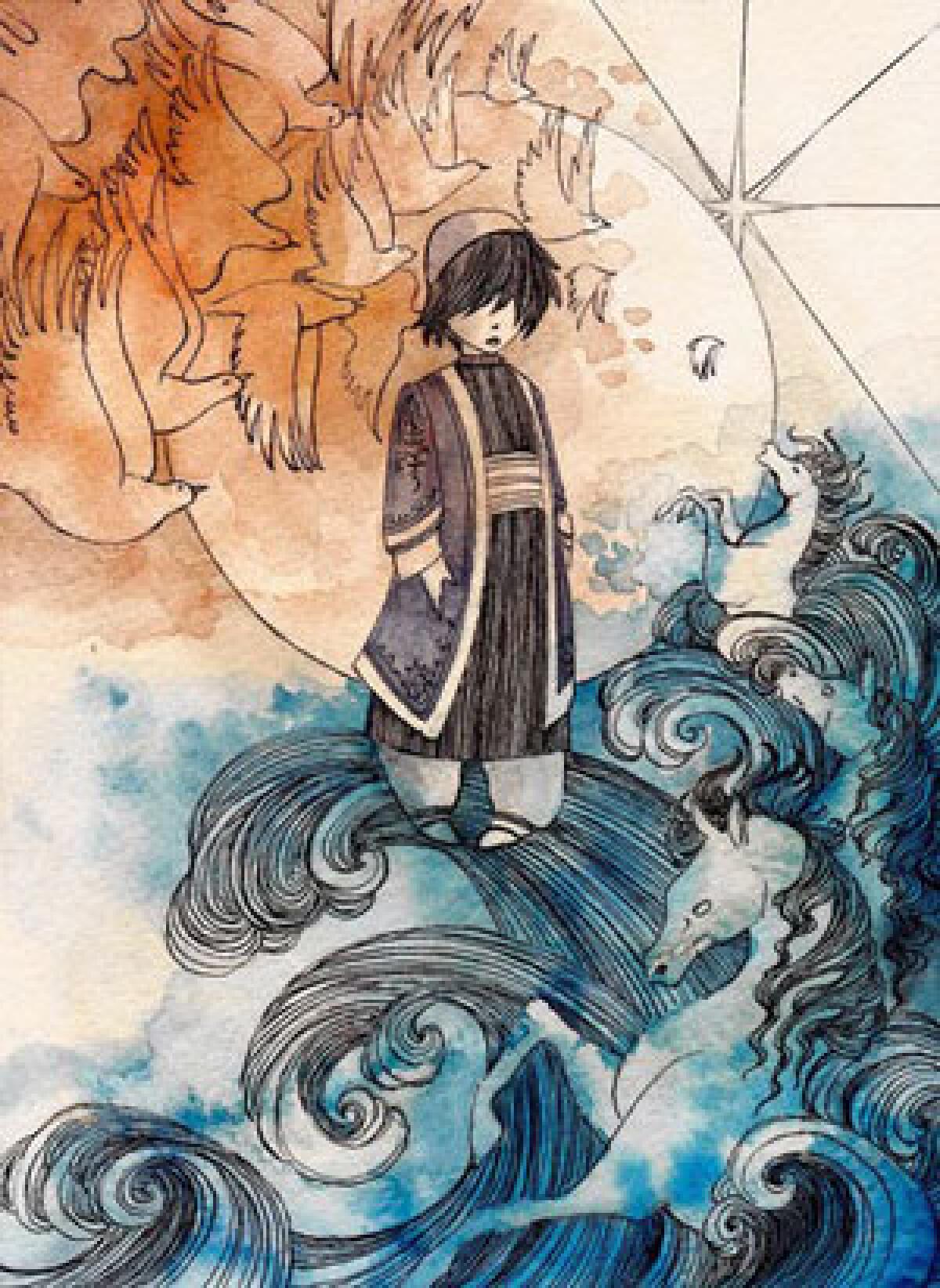Book review: ‘The Oracle of Stamboul’ by Michael David Lukas

The Oracle of Stamboul
A Novel
Michael David Lukas
Harper: 294 pp., $24.99
Michael David Lukas’ beguiling first novel starts with a familiar storyline, the hero’s journey that underpins epic fantasy series such as “The Chronicles of Narnia” (C.S. Lewis), “The Lord of the Rings” (Tolkien), the Harry Potter books (J.K. Rowling) and George Lucas’ “Star Wars.” But Lukas veers from the tried-and-true, making “The Oracle of Stamboul” a novel that offers delightful surprises.
His hero is a precocious 8-year-old Jewish girl named Eleonora Cohen. Special omens accompany her birth on a late summer day in 1877 in Constanta, a far outpost of the Ottoman Empire (now part of Romania). Two Tartar midwives appear, called forth by a prophecy: “They had read the signs, they said: a sea of horses, a conference of birds, the north star in alignment with the moon.” Another auspicious sign: A flock of peculiarly colored purple and white hoopoes circle above the harbor, “looping and darting about as if in an attempt to mend a tear in the firmament,” and nest in the Cohens’ fig tree.
Eleonora’s birth is not without tragedy. Her mother dies shortly after she draws her first breath, and that day Constanta is decimated by the Tsar’s cavalry on a rampage.
Eleonora shows early signs of prodigious genius. And she has grit. At 8 she stows away in a trunk of carpets to accompany her father, Jakab, from Constanta to Stamboul (Istanbul). Eleonora is dazzled by the Bosporus teeming with fishermen and ships, the colorful marketplace under the cypress trees, three turtle-domed mosques, and “at the confluence of waters, the most glorious building [she] had ever seen,” the residence of Sultan Abdulhamid II, “a testament to inconceivable wealth and power.”
This fabled city is the center of the Ottoman Empire, which for centuries stretched from “the gates of Vienna to the shores of the Persian Gulf,” encompassing Jerusalem, Baghdad, Damascus and Cairo. By the time Eleonora arrives, the web of empire, pulled taut, threatens to break.
In chapters centered on the Sultan, Lukas describes fluidly how court intrigue permeates Stamboul in its decline, with internal economic and rebellious pressure mounting and the Germans, Russians, Americans, English and others exerting influence from abroad.
Eleonora settles into the palatial home of her father’s business partner and friend Moncef Bey, where she is reunited with Mrs. Damakan, one of the midwives from her birth. Her flock hovers nearby, sending her signals, even visiting the Sultan in his garden as if to open a conduit between them.
As they are about to leave Stamboul, her father is killed in an accident on the Bosporus that might have been sabotage. It seems her fate is to stay on. The Bey, now her guardian, arranges for her to be tutored by a Yale-educated American headmaster (who also happens to be a spy). Within months she speaks seven languages, translates long passages from the “Aeneid,” Herodotus and Aeschylus. The Sultan hears of her gifts (from her tutor) and summons her for a visit.
Lukas has created in Eleonora a thoughtful character with a fully developed sense of honor. When she spots her tutor searching through the Bey’s desk and removing something, she reports the incident. The Bey, who has his own reasons for thinking himself under surveillance by the Sultan’s forces, ends the tutorials. Eleonora thinks of a line about truth from her literary favorite, “The Hourglass”: “A slippery fish, flashing scales in the water and a noble fighter on the line, but dull as lead at the bottom of the boat.” (“The Hourglass,” Lukas’ invention, is a “magical seven-volume chronicle of a notable Bucharest family in decline”; Eleonora quotes from it regularly, often choosing passages that urge her to follow her own heart.)
Shortly before Eleonora meets the Sultan, the Bey tells her of the prophecy connected with her birth, the horses, the birds and this: “a young girl would come, to push against the tides of history and put the world right again on its axis.”
At this point in Lukas’ plot, we anticipate heroic action. Indeed, Eleonora’s insights into the Sultan’s dilemmas earn his trust; word gets around, and a traveling American journalist dubs her the “oracle of Stamboul.”
Is it Eleonora’s fate to alter history? Does she have a choice? Might a hero’s quest be for something other than power or influence? What will she do next? Lukas has a refreshing variation on the usual tricks up his sleeve. In a final magical move, Eleonora slips loose of the ending we expect.
Ciabattari is a regular contributor to NPR and the Daily Beast, among other publications.
More to Read
Sign up for our Book Club newsletter
Get the latest news, events and more from the Los Angeles Times Book Club, and help us get L.A. reading and talking.
You may occasionally receive promotional content from the Los Angeles Times.






